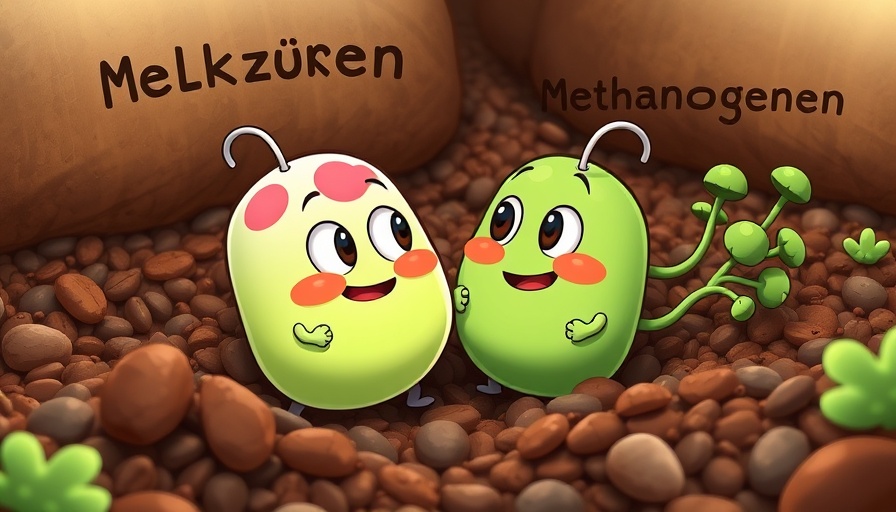
Improving Farming Practices Through Innovative Fermentation
In an era where sustainability and environmental responsibility are taking center stage, innovative techniques for managing waste materials in agriculture are becoming invaluable. One technique gaining momentum is the biological acidification of manure, combined with fermentation processes that substantially reduce harmful emissions of ammonia and methane. Recent studies indicate that not only does this approach profoundly benefit environmental health, but it also leads to economic advantages for farmers.
Understanding the Science Behind Acidification
At the core of this method is the addition of energy-rich substances, such as molasses, to manure. This action encourages lactic acid bacteria—already present in animal waste—to produce lactic acid, lowering the manure's pH from above 7 to a more desirable level between 5 and 5.5. Research from the Nutrient Management Institute (NMI) highlights the effectiveness of this method, showing significant reductions in ammonia emissions and bolstered conditions for methane production when manure is digested following acidification.
A Two-Fold Environmental Solution
The significant dual benefit of this approach is in its capability to simultaneously reduce emissions and increase biogas production. Experimentation has shown that intertwining the acidifying process with existing biogas digesters can double the amount of biogas produced—a promising outcome that highlights the economic viability of this method.
Real-World Applications in Groningen
Starting in August 2024, a practical trial was launched in Groningen, testing the acidification of manure mixed with molasses. By regularly mixing this product, farmers aim to sustain an optimal pH level, ensuring it remains beneficial for the entire fermentation process. Some preliminary findings revealed that ammonia emissions from manure storage could be cut by 70 to 90 percent—an astounding figure given the environmental consequences of ammonia in the atmosphere.
Reducing Methane Emissions Effectively
What sets this method apart is its additional capability of stopping methane emissions from manure storage when the pH drops below 6. Methanogenic microbes, responsible for methane production, become inactive at these levels. This means farmers can expect a total reduction in emissions from 20 to 25 percent at a business level, which speaks directly to the evolving practices of modern agriculture and their alignment with climate goals.
The Economic Viability of Sustainable Farming
The transition to sustainable farming techniques can feel daunting for many agricultural professionals concerned about operational costs. The introduction of this acidification process, however, offers an economically feasible solution. By facilitating optimal conditions for the fermentation of manure into biogas, farmers can expect not only to meet environmental emission standards but also to enhance their operational efficiency and profitability.
Cultural Impact and Farmer Adoption
As farmers grapple with changing regulations and consumer demand for sustainable practices, community-driven initiatives around manure management are more crucial than ever. The growing enthusiasm from agricultural experts and farmers alike, as demonstrated by the Groningen initiative, exemplifies a community dedication to improving both economic viability and environmental stewardship in farming.
Conclusion: Embracing Sustainable Practices for a Better Future
The biological acidification of manure coupled with fermentation presents a promising pathway towards minimizing agricultural emissions while maximizing biogas production. As farmers increasingly embrace these innovative practices, they not only advance their bottom line but also contribute meaningfully towards broader environmental goals. Making timely decisions to adopt such techniques could lay the groundwork for a more sustainable agricultural landscape and foster healthier ecosystems.
 Rij toevoegen
Rij toevoegen






Write A Comment